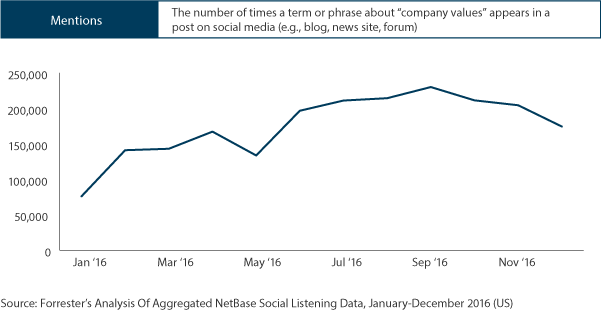The Data Digest: The Year Of Empathy
Happy 2017! Settling in to the New Year often renews hope and excitement for the future, and rekindles anticipation for the brands, products, and experiences on the horizon. This year, it’s hard to think about imminent innovations without considering a modern imperative that is rapidly moving to the forefront of conversation: customer empathy.
We are barely three weeks into 2017 and already the cry for customer empathy – and brands’ responses to it – are popping up frequently. At the Consumer Electronics Show, the “insanely cute” Kuri personal robot stole consumers’ hearts, and took the notion of “tech love” to a whole other level. The progression of Artificial Intelligence is sparking public debate about the role of compassion in human connection. And people find themselves seeking meaning, purpose, and understanding over happiness.
The need for empathy affects how customers evaluate brands too: Consumers increasingly prefer companies that resonate with shoppers’ personal values. Forrester’s Consumer Technographics® social listening data shows that consumer buzz about company values is on the rise:

And company values are more than what a brand touts in its tagline or advertising copy – company values are evident in what the brand stands for and how it conducts business. Values can refer to an organization’s commitment to producing organic products, adopting environmentally friendly or “green” tactics, employment and labor conditions, political or social positions, and other practices. This means that slick advertising messaging or calculated PR campaigns are not enough to market a brand’s empathy for customers. Today’s empowered consumers are getting smarter about whether companies’ words and actions align.
While the focus on empathetic relationships is growing stronger, companies still have a long way to go to satisfy the needs of their customers. You’ll find us writing about this a lot this year. And why is this important? Because, as our previous research has shown, when shoppers make “value-based purchase decisions they invest greater trust in the companies they buy from. These brands forge richer emotional connections with shoppers, build stronger relationships with their customers, and resonate with shoppers at the deepest level.”
